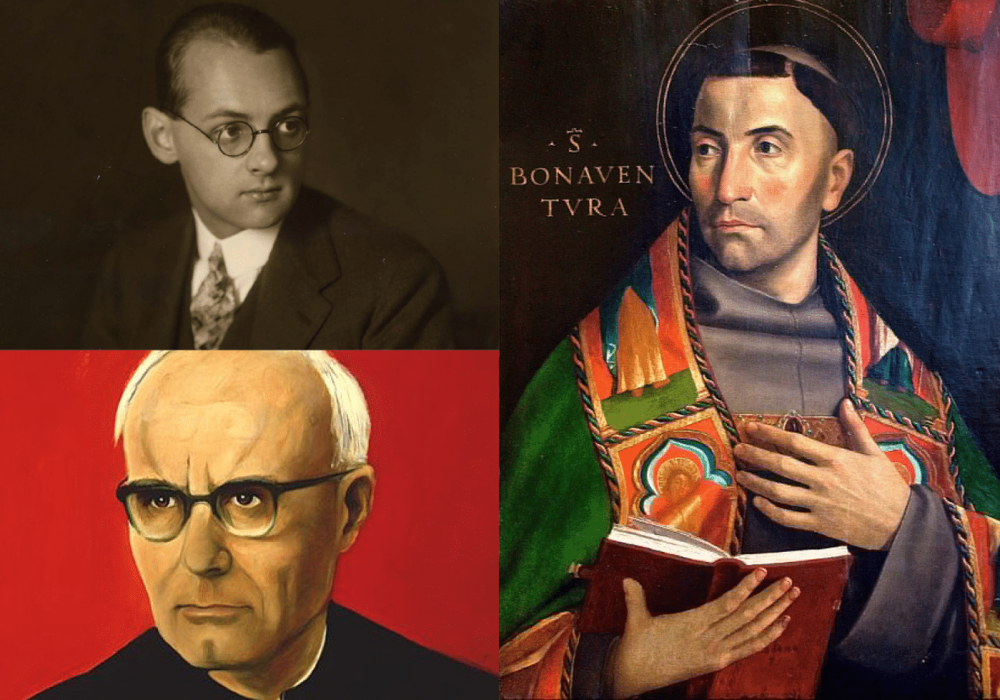Open to current students and faculty. Others interested in participating should contact info@lumenchristi.org. Registrants will receive copies of the prepared reading.
In an era of outstanding theologians who made the teachings of Vatican II possible, Hans Urs von Balthasar (1905-88) and Karl Rahner (1904-84) emerge as titans. Both were German speaking: Rahner came from Baden and Balthasar from Switzerland. Rahner died as a Jesuit, having taught in Innsbruck, Munich, and Muenster. Balthasar left the order in mid-life to serve as chaplain to a secular institute in Basel. Both were prolific writers. Rahner’s chief works are Spirit in the World (1957), a study of Aquinas’s theory of knowledge; Hearer of the Word (1941), a study in Christian philosophy of religion; Foundations of Christian Faith (1976), a systematic theology of Catholicism; and the renowned Theological Investigations (1954- 84), sixteen volumes on a wide range of topics. Balthasar produced, among other works, a renowned trilogy, each multi-volumed: The Glory of the Lord: A Theological Aesthetics (1961-67); Theo-Drama (1973-83); and Theo-Logic (1985-87). I would also mention his influential Theology of Karl Barth (1951).
Although they began their careers as collaborators, especially in reconceiving nature and grace, they ended as antagonists over theological method. Our Master Class will peer into their differences by reading their interpretations of the mystical theology of St. Bonaventure, the thirteen- century Seraphic Doctor. Rahner published his study in 1933 in Revue d’ascétique et de mystique;Balthasar published his in 1961 in the first volume of Glory of the Lord. I will argue that they develop remarkably contrasting views of Bonaventure, because they hold remarkably contrasting views on a broader issue. It concerns the impact of the act of faith on the human person’s faculties.
Our two sessions, each of an hour separated by a break, will deal first with Rahner’s article, then with Balthasar’s, then with the broader issue.
Readings:
-
Balthasar, Hans Urs von. “Bonaventure.” In Seeing the Form. Glory of the Lord 2. Trans. Andrew Louth et al. San Francisco: Ignatius, 1984: 260-362, at 306-26. Originally as above.
-
Rahner, Karl. “The Doctrine of the ‘Spiritual Senses’ in the Middle Ages.” In Theological Investigations 16. Trans. David Morland, OSB. New York: Crossroad, 1983: 104-34. Originally as above.
-
Fields, Stephen. “Balthasar and Rahner on the Spiritual Senses.” Theological Studies 57 (1996): 224-41 (selections).
Questions to Guide the Readings:
-
How does each thinker see Bonaventure conceiving the relation between soul and body in the human person?
-
How does each thinker see Bonaventure conceiving the ‘spiritual senses’?
-
According to each thinker, what is the Object of the spiritual senses?
-
According to each thinker, what are the important spiritual senses? Why?
-
How does each thinker interpret Bonaventure’s mysticism as “learned ignorance”?
-
In your opinion, does Rahner’s interpretation obviate Christ? Does Balthasar’s interpretation finally give any importance to mysticism in Christianity?

